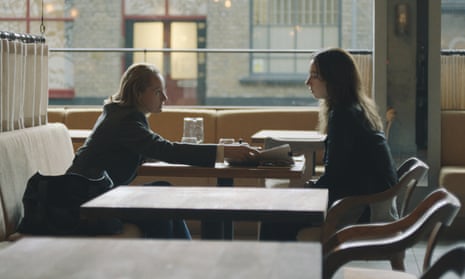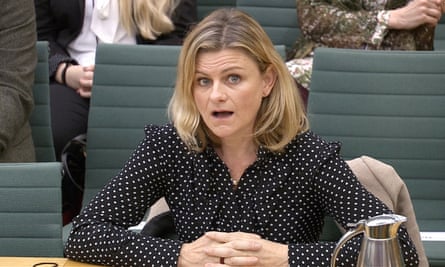Why are these extreme confidentiality clauses still used in the UK to protect the perpetrators of abuse? asks Zelda Perkins in The Guardian

More than two decades ago, I walked into the offices of a law firm in Soho, my 24-year-old self confident that it would help me to expose and address the appalling behaviour of my then boss, the film producer Harvey Weinstein. His attempted rape of a new assistant while we were at the Venice film festival – on her first occasion alone with him – put me on the path I knew was right. The frightening but clear and proper course to justice.
But nothing could have prepared me for the ways in which the legal system would fail my colleague and me so thoroughly, or for the irreversible impact of entering – on our law firm’s advice – into a damages contract containing extreme confidentiality clauses, otherwise known as a non-disclosure agreement, or NDA.
Due to the enormous disparity of power and wealth between Weinstein and ourselves, we were given no choice but to sign the agreement. The NDA not only forbade us from talking about Weinstein’s behaviour, but also about our entire career at Miramax – to family, friends, medical practitioners including therapists, even to HMRC if questioned about the damages payment. We were to use our “best endeavours” to limit what we said in any future criminal or civil action taken against him, and let him know if we were approached . We were not even allowed to have a copy of the document that was to control our lives “in perpetuity”. And it seemed clear to us that we could face jail and financial ruin if we breached it.
My attempt to report on Weinstein’s behaviour cost me my career. While he collected Oscars, I endured job interviews where men openly questioned me about my “relationship” with Weinstein, but I was gagged from telling the truth. The inability to find a job or speak freely drove me to move my life abroad.
Today Weinstein is in an LA jail, awaiting a verdict from an LA court at his second trial for sexual assault and rape. He is already serving 23 years for sexual assault. She Said, the film about the two New York Times journalists who broke the story, is playing in cinemas around the world, exposing how his reign of terror came to be and the mechanisms that protected him. So why am I still having to talk about this issue, five years on from breaking my NDA to those New York Times journalists? I had believed that by uncovering the system that enabled Weinstein and others in power, things would change. In many places they have, but not here in the UK.
Over the past 25 years NDAs have become the default solution for settling cases of sexual misconduct, racism, pregnancy discrimination and many other human rights violations. They are sold as helping the victim by protecting their name, where in fact a simple one-sided confidentiality clause would do that. In reality NDAs serve only to protect an employer’s reputation and the career of the perpetrator, allowing abusers to continue their behaviour while victims lose both their jobs and the ability to warn others about the individual or the workplace. Settling an employment dispute involves agreeing not to take any further legal action – it should not be a deal to protect or hide abuse.

In 2018 I, along with others, gave testimony to the women and equalities select committee about how NDAs were being abused in the UK. The Conservative government vowed it would “end NDAs being used unethically” but the recommendations of the select committee and the following consultation by the Department for Business, Energy and Industrial Strategy were ignored. Not one change has been made. And so in workplaces across the country, abusers are still protected – and every week my email inbox is full of desperate messages from people (mostly women) being forced into silence.
They come from all industries – media organisations, corporations and public services. From the testimonies and data we are collecting, we know that NDAs also have a disproportionate impact on those who are already vulnerable. Black women are three times more likely to sign an NDA than white women. Women are five times more likely to sign an NDA than men.
But it doesn’t have to be like this, as we can see from progress in the US, Canada, Ireland and Australia. Over the last five years 15 US states have changed their legislation around NDAs and this November, in a historic move, Joe Biden supported a bill through Congress stopping the use of NDAs in cases of sexual misconduct. Ironically, on the same day, our deputy prime minister, Dominic Raab, claimed in the House of Commons, when questioned about an alleged NDA, that it was merely a “confidentiality agreement”. As a lawyer, he well knows the two are one and the same.
Although it is shocking that in the UK the legal mechanism that protected Weinstein is still protecting abusers, there are glimmers of hope. Earlier this year the Department for Education, in conjunction with Can’t Buy My Silence, the campaign I co-founded with Prof Julie Macfarlane in 2021, introduced a voluntary pledge for UK universities and colleges of higher education to stop using NDAs. So far 60% in England have signed up, meaning 1.5 million students are protected from being gagged about abuse.
The common sense behind this call has clearly been heard elsewhere – as last week the Lords added an amendment to the new higher education freedom of speech bill, banning the use of NDAs in universities and colleges in cases of sexual harassment, bullying or discrimination. If this becomes law then there is an even clearer signal to our government that it is time to change the system and outlaw this legal tool in all workplaces. To add to this the government has just backed legislation that would make sexual harassment in the street a criminal offence – this is a huge stride, at last acknowledging and protecting women from the daily abuses they endure.
There is nothing ethical about a legal agreement that hides bullying, racism or any form of assault and works purely to protect powerful wrongdoers. It would be both morally correct and economically wise to ban the use of NDAs. What a legacy it would be if Rishi Sunak were to make all workplaces safer and more productive – protecting not just women but anyone who faces discrimination or harassment.